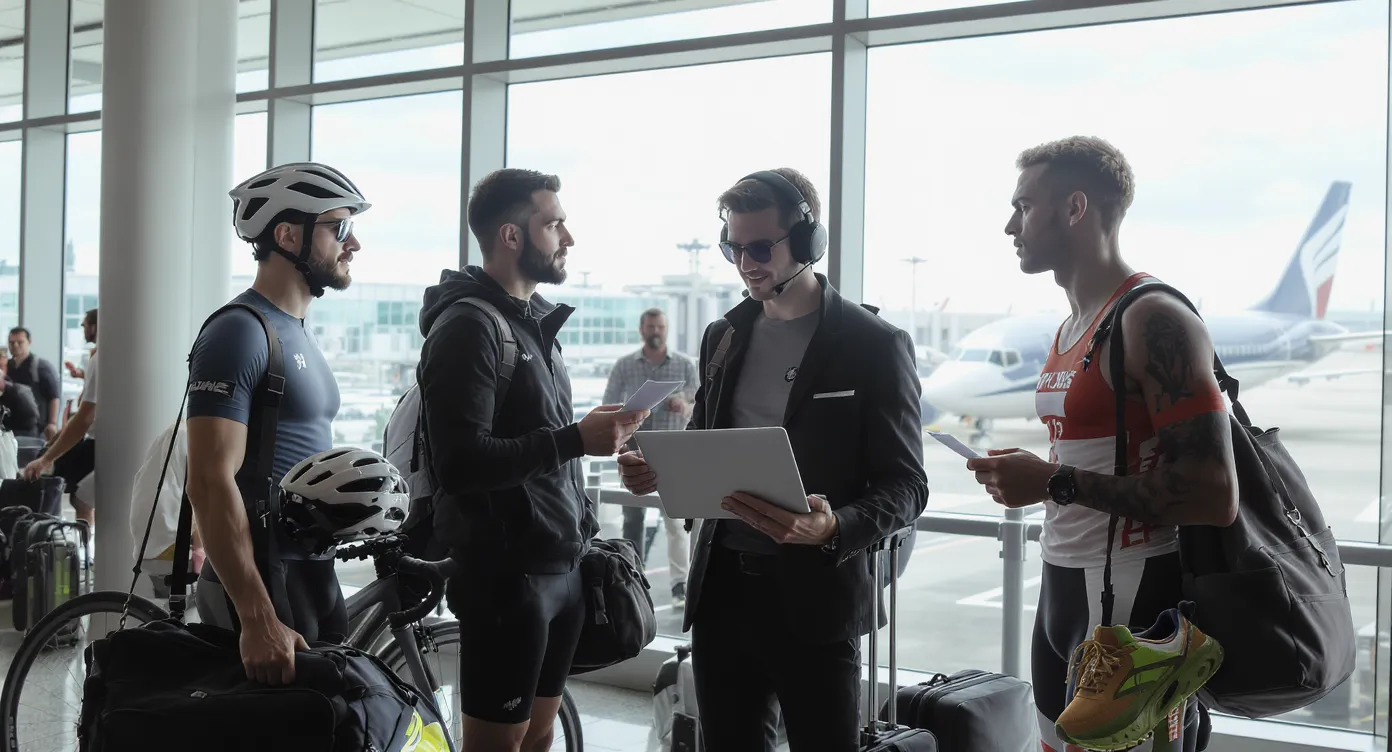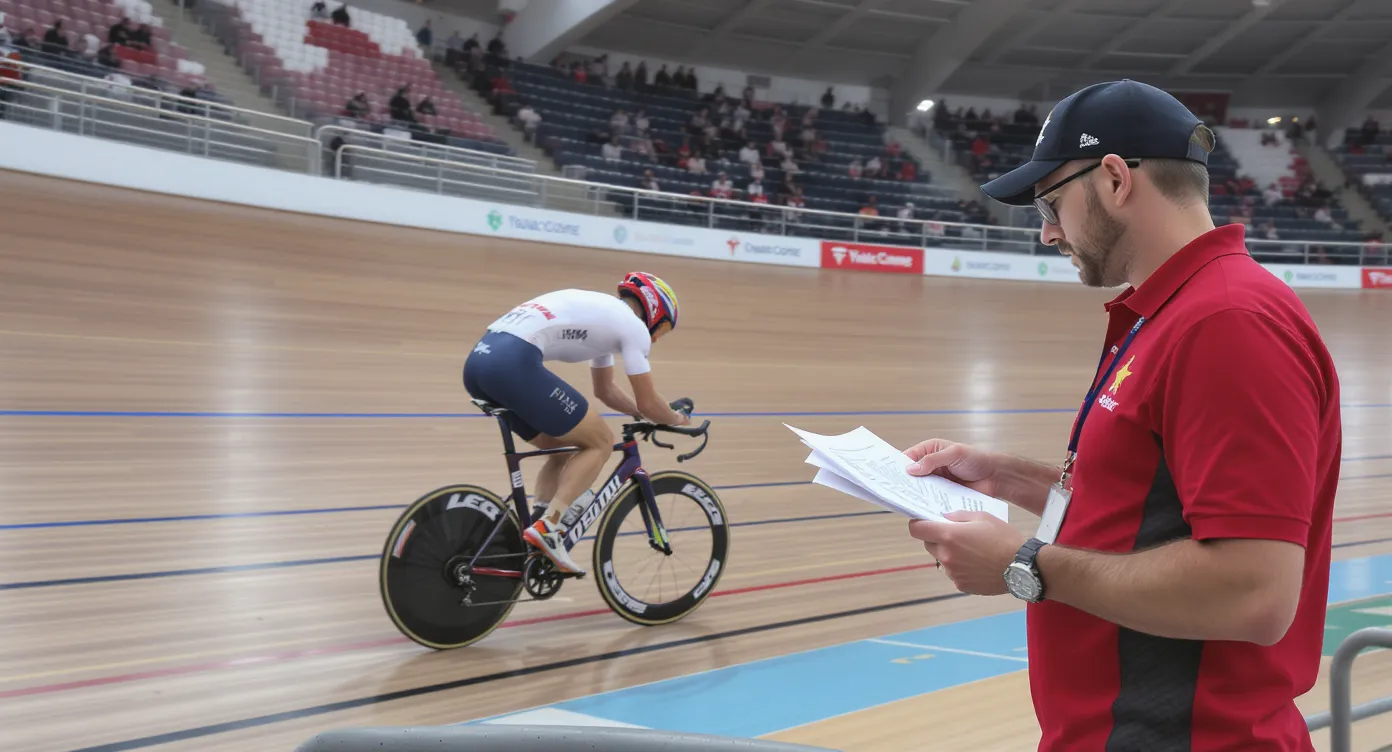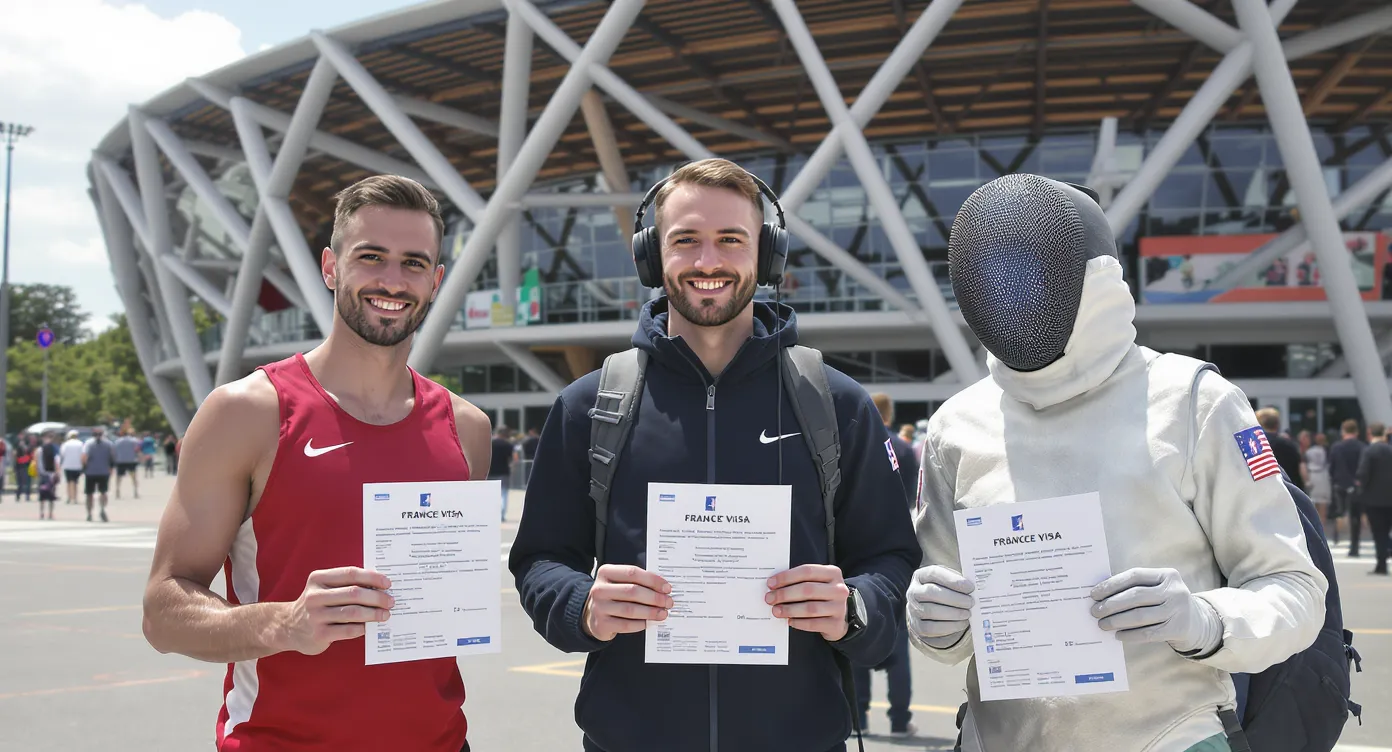Immigration Rules for Remote Athletes Competing in France

Why “Remote Athletes” Need an Immigration Game Plan
Until recently, the term remote athlete sounded contradictory. Yet in 2025, more and more competitors are hired by French clubs but live and train abroad—think e-sports professionals streaming scrimmages from Seoul, cyclists based in Girona who race the French calendar, or American track stars who fly in for the Diamond League. While these athletes spend most days outside France, entering the country for competitions or commercial shoots still triggers French immigration law. Failure to hold the correct status can void prize money, cancel contracts, and even lead to bans.
This guide explains the current immigration pathways for remote athletes, how the 2024-2025 reforms changed the playbook, and the steps ImmiFrance follows to secure quick, compliant travel or residence rights.
Key Takeaways at a Glance
| Scenario | Max stay per visit | Paid activities allowed? | Recommended status |
|---|---|---|---|
| Competing in a single event (e.g., Paris Marathon) | 90 days in 180 | Yes, if prize money only | Schengen short-stay sport visa (Visa C Sportif) |
| Multiple paid appearances for a French club/league, total < 90 days per semester | 90 days in 180 | Yes, salary + bonuses | Short-stay visa WITH work authorization (Apt Sport L.5221-2 CT) |
| Season-long contract (football, basketball, cycling) | > 90 days | Yes | Long-stay visa-residence permit: Passeport Talent — international athlete |
| Remote athlete under foreign payroll visiting for training camps only | 90 days in 180 | No French remuneration | Visa-free if nationality exempt OR Visa C Tourist with “sport” purpose |
| Olympians & Paralympians Paris 2024 legacy events (2025 circuit) | Varies by schedule | Yes | Group accreditation + collective visa waiver under Ordonnance n° 2023-568 |
1. Understanding the Legal Definitions
French immigration categorises athletes as travailleurs salariés du spectacle sportif (salaried sports performers) under Code du Travail Article L.7124-1 and CESEDA Article L.421-16. Whether you are paid by a French or foreign entity determines if a work authorization (autorisation de travail) is mandatory.
- Short, unpaid presence (training, media day): immigration treats you as a visitor.
- Prize-money only: still a paid activity but exempt from the Labour Code test; the short-stay sport visa is enough.
- Salary or sponsorship paid by a French structure: an authorisation via ANEF-Emploi Sport is required, even for 48 hours on French soil.
Since 1 July 2025, ANEF has consolidated all sport work permit filings, cutting approval times from 30 to 15 calendar days according to the Ministry of Interior’s September 2025 performance dashboard.
2. Option 1 – The Schengen Short-Stay Sport Visa
This visa (type “C-Sportif”) covers:
- One or several events over 90 days within any 180-day rolling window.
- Prize money, appearance fees, accommodation, and per-diems paid by the organiser.
Documents typically required in 2025:
- France-Visas form and passport valid 3 months past last exit.
- Invitation letter from the federation or organiser detailing event dates and financial conditions.
- Proof of sufficient means (€65/day) or organiser coverage.
- Travel insurance (€30 000 minimum; many federations use the FFG assurance group contract).
- If minor: parental consent + appointed chaperone.
Processing time is 7–15 days. Nationals of 53 visa-exempt countries (USA, Canada, Japan, etc.) may skip the visa but must still respect the 90/180 limit and carry support letters to avoid refusal at the border.
Pitfalls to avoid
- Cumulative training camps count toward the 90-day rule. Keep a spreadsheet; ImmiFrance’s Schengen Tracker app can automate this.
- A coach accompanying the athlete is NOT automatically covered. They need their own status (visa or posted-worker declaration).
- Exceeding 90 days without leaving Schengen leads to 3-year Schengen bans under Article R.211-1 CESEDA.
3. Option 2 – Short-Stay Visa + Work Authorization
When a French club hires a foreign athlete for < 90 days (for example, a basketball “medical joker”), the club must:
- File an ANEF-Emploi Sport request (CERFA 15186*04) with contract, wage details, and copies of the athlete’s passport.
- Pay a €200 OFII fee if approved.
- Send the approval code to the athlete, who then applies for a Visa C with the “travailleur temporaire — activité sportive” label.
The whole loop can be completed in three weeks if the file is complete. Because the 2025 quota system does not apply to high-level sports, Labour Office objections are rare (< 2 % per DGEFP bulletin Q2-2025).
4. Option 3 – Long-Stay Passeport Talent “Athlète de Haut Niveau”
Athletes under contract for an entire season (football Ligue 1, Pro A basketball, UCI WorldTour cycling) need a residence permit. Two tracks exist:
A. Passeport Talent – Renommée Internationale (Article L.421-19 3° CESEDA) if the athlete has significant international results (Olympics, World Championships podium, etc.). This route skips the labour-market test.
B. Standard Salaried Sportsperson Permit when the athlete does not meet the “renowned” threshold. The club files the ANEF work authorization first, then the athlete applies for a Visa D.
Required dossier highlights (2025 season):
- Contract registered with the national sports league.
- Proof of resources ≥ French minimum wage (SMIC) adjusted for length of season.
- Anti-doping attestation from the athlete’s home federation.
- Medical certificate (dated < 3 months) complying with Décret n° 2024-155.
After arrival, the athlete must validate the visa on administration-etrangers-en-france (ANEF) within 3 months and pay the €225 tax.
Renewal strategy
ImmiFrance recommends starting renewal 5 months before expiry, especially for athletes traded mid-season. A récépissé will cover competitions while the new card is printed.
5. Special Cases in 2025
-
E-sports Teams: French law now recognises professional gaming contracts under the same sport visa categories (Arrêté 17 Dec 2024). Streaming revenues declared abroad can complicate tax residency; we coordinate with fiscal advisers.
-
Paris 2024 Legacy Events: Certain world cups and para-sport events benefit from a collective accreditation waiver valid until 31 Dec 2025. Athletes listed on the validated roster may enter without individual visas if their passport lists an exempt nationality. Teams should still keep copies of the waiver letter at the border.
-
British Athletes Post-Brexit: The EU-UK Trade & Cooperation Agreement grants streamlined visas for sportspersons up to 90 days, but work authorization is still mandatory if paid by a French entity.
6. Tax and Social Security Touchpoints
- Non-resident flat tax (Article 182-A CGI) applies to prize money > €15 000 per event. Organisers must withhold 15 %.
- Long-stay permit holders become French tax residents if present > 183 days or if France is their main training base.
- Foreign social security contributions can be waived under bilateral agreements (e.g., US-France totalisation), but proof must accompany the visa file.
7. Compliance Checklist Before Every Entry
- Passport valid +3 months after exit.
- Paper or PDF of invitation/contract.
- Proof of accommodation (hotel, club housing).
- Travel insurance covering the entire stay.
- For paid stays: ANEF approval or validated residence card.
- Covid-19 rules were lifted in March 2024, but private organisers may request vaccination certificates.

8. How ImmiFrance Assists Remote Athletes and Clubs
- Eligibility audit in < 48 h – we confirm whether a visa is required, which category fits, and if ANEF approval is mandatory.
- Prefecture-grade document kit – our team assembles invitation letters, contract clauses, and federation attestations that match CESEDA wording, reducing rejection risk.
- ANEF & France-Visas filing – end-to-end data entry, fee payment, appointment booking and real-time tracking in your ImmiFrance dashboard.
- Border support hotline – if an airline refuses boarding or border police question paperwork, our bilingual lawyers step in.
- Renewals and upgrades – from short-stay to Passeport Talent, ensuring continuous eligibility for European competitions.
Success metrics (internal 2025 data)
- 96 % first-try approval rate for sport visas (n = 128 cases).
- Average ANEF approval: 12 days vs national average 15 days.
- Zero missed competitions due to paperwork since Jan 2024.
Remote athletes focus on winning. ImmiFrance handles every kilometre of the administrative race – from the first invitation to the final podium ceremony. Contact us today for a tailored playbook and keep your next French competition worry-free.

